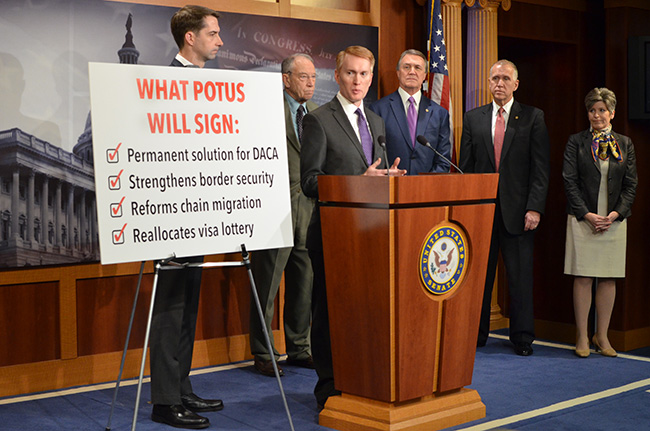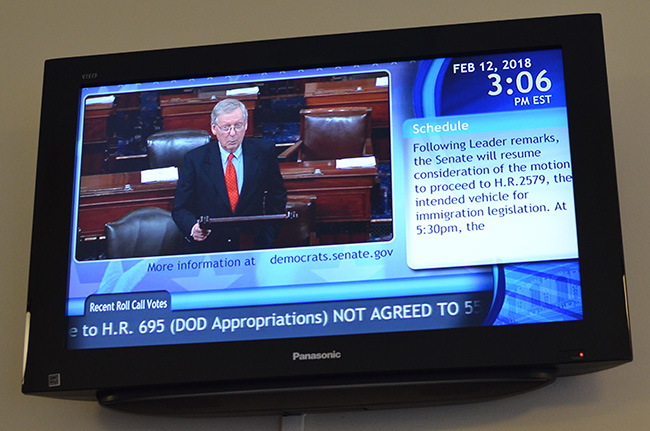| Immigration Debate Begins in the U.S. Senate ... 1 of 3 > |
 |
| Feb. 12, 2018 - Senate Minority
Whip Dick Durbin
(D-IL) speaks with reporters after making opening remarks in the
immigration debate. |
 |
| Conservative Republicans speak
on their
legislative proposal, which closely parallels the Trump administration
framework. |
 |
| As part of
budget deal announced last week (+),
Senate
Majority
Leader Mitch McConnell agreed with Senate Minority
Leader Chuck Schumer to a rare open
debate
on the floor of the U.S. Senate on immigration. The driving force for this debate was President Trump's announcement in Sept. 2017 that he was rescinding the Deferred Action for Childhood Arrivals (DACA) program in six months, effective March 5, 2018 (+). DACA, a temporary program instituted by President Obama in 2012, allowed qualifying DREAMers—immigrants who were brought to the United States illegally by their parents as infants and young children—to stay and work in the country. Between 700,000 and 800,000 people signed up, and they could renew their status after two years. Since Trump's announcement, 122 DACA recipients per day have been losing their status. This would potentially put them at risk of deportation, but a couple of court injunctions have kept the program going. DREAMers have been relentlessly working Capitol Hill to secure a "clean DREAM Act," a narrow bill that would address their plight (+). However, President Trump has proposed an immigration framework that contains four pillars: border security, DACA legalization, limitations on extended-family chain migration, and elimination of the visa lottery (+). Democrats and Republicans appear far apart, and it may take a miracle to achieve the requisite 60 votes. Minority Whip Dick Durbin (D-IL), a sponsor of the original DREAM Act, which was introduced in 2001, is the leading voice on the Democratic side. A group of conservative Senators (Chuck Grassley (IA), James Lankford (OK), Joni Ernst (IA), Tom Cotton (AR), John Cornyn (TX), Thom Tillis (NC), and David Perdue (GA)) are co-sponsoring the Secure and Succeed Act, which parallels the president's framework, and which they argue is the only legislation that can actually pass the House and be signed into law by President Trump. Conservatives also argue that they have made significant compromises including the path to citizenship and foregoing action on sanctuary cities and E-Verify. Finally, there are also a few moderate Republican voices, the most prominent of whom is Sen. Lindsey Graham (R-SC). |
| next
> |

